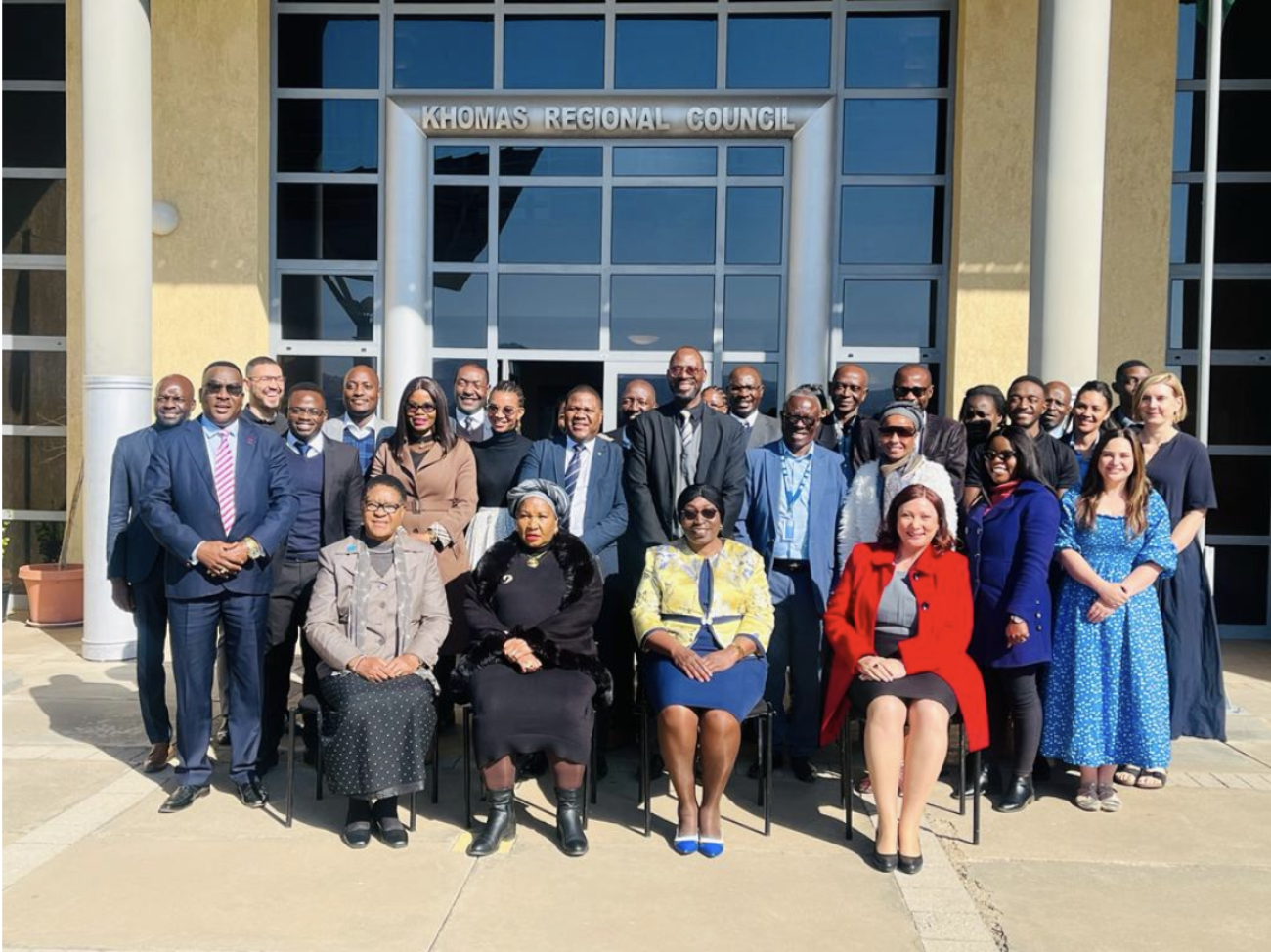in Windhoek on 4 July 2023.
The initiative is aimed at enhancing monitoring, evaluation and reporting of the Namibia School Feeding Programme (NSFP) implementation in government schools.
The NSFP is a social safety net that aims to improve equitable access, improved learning and education for all school-going children in Namibia, particularly those from food-insecure households. Through this programme, provision is made for a standardised mid-morning meal, mainly targeting the feeding of primary school pupils countrywide.
The programme expanded from supporting 78 000 children in 1996 to more than 400 000 pre-primary and primary school pupils in 1 500 schools to date.
The main objective and benefits of the NSFP are the provision of balanced and diversified diets with food procured from local smallholder farmers and served with the existing fortified maize blend, creating a predictable income for the smallholder farmers and traders, and boosting agricultural production, thereby enhancing the local economy and reducing poverty.
The WFP has provided multi-year technical assistance to strengthen the programme implementation. The school feeding operation will include fully digital school rolls, electronic meal vouchers, and attendance tracking extending further upstream in education authorities to track pupil enrolment and attendance and critical performance metrics for school meal programmes,” the statement added.
According to deputy education minister Faustina Caley, the national school feeding programme is a safety net to which Namibia has made a strong commitment in order to alleviate immediate hunger among school-going children. “This contributes to improved school participation in terms of enrolment and attendance, as well as learning achievement and cognitive development,” Caley said.
She said collecting data in real time is inherently challenging paper-based systems of data collection which can be slow, however, digital technologies potentially offer efficient collection and real-time data. Caley said the management system as an appropriate information and communications technology (ICT) solution is one of the distinct development areas for the use of ICT in education programmes that will improve efficiency in the delivery of quality service related to school feeding programmes.
According to WFP Namibia Country Director and Representative George Fedha, the first instalment for NaSIS has been completed and deployed on government infrastructure. “The subsequent instalment will focus on tracking school attendance, the introduction of meal vouchers, integrations with the home-grown school feeding programme, and enhancing business intelligence,” Fedha said.
-END-
Issued by: Public Relations
Ministry of Education, Arts and Culture & World Food Programme






